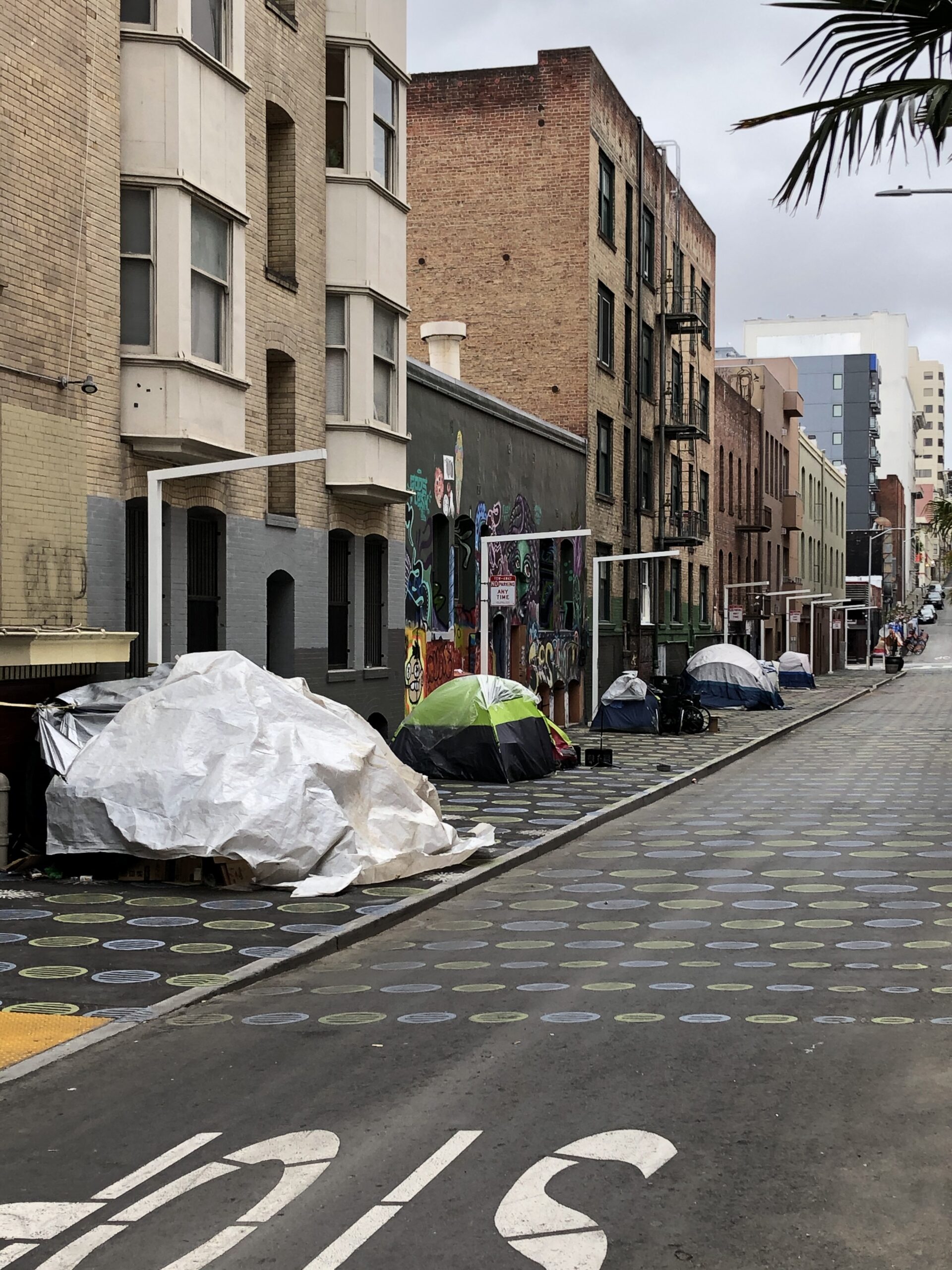
In response to California’s growing mentally ill homeless population, the state legislature is considering new legislation, Senate Bill 43, to change existing mental health laws. S.B. 43 comes just a year after the passage of the CARE Court program that allows behavioral health professionals and family members to create court-ordered treatment plans for individuals with schizophrenia and other psychotic disorders. Passage of S.B. 43 is important as it will allow local governments to treat a greater number of mentally ill individuals experiencing homelessness who, unfortunately, do not have the capacity to help themselves.
S.B. 43 seeks to modify the Reagan Era Lanterman-Petris-Short Act, LPS, which limits the circumstances for individuals with mental disorders to qualify for detainment. Senator Susan Talamantes Eggman, the bill’s primary author, is pushing to broaden the definition of “gravely disabled” outlined in the LPS Act by expanding the requirements for involuntary detainment, specifically among the state’s homeless population, and providing them with mental health services. Under S.B. 43’s expanded definition, “gravely disabled” would include any person experiencing a substance use disorder who is “at substantial risk of harm” to their “physical or mental health.
Due to the state’s unaffordable housing crisis, 30% of the nation’s homeless population live in California, where an estimated 52% have severe mental illnesses or suffer from addiction. California’s 13 largest city mayors support the bill, including San Francisco London Breed, as it was recently reported that 30 to 40% of the homeless population in San Francisco suffer from mental psychosis. Similarly, a 2019 report found that 25% of those experiencing homelessness in Los Angeles County had severe mental illnesses, such as schizophrenia and psychotic disorder.
Opponents of the bill expressed civil liberty concerns about S.B. 43, citing the constitutional right to self-determination and the ability to make decisions about an individual’s own life without the intervention by the government. The right to liberty is exercised in many medical situations today, such as the “right to refuse medical treatment, even treatment necessary to sustain life.” But, when an individual lacks the capacity to fully understand and comprehend their circumstances, the state should legally act as a “parental authority” to protect those individuals.
Additionally, opponents are also arguing S.B. 43 will exacerbate racial, ethnic and gender disparities in the LPS Act system. The County Behavioral Health Directors Association, a nonprofit advocacy organization, states the LPS Act is disproportionately used to involuntarily detain Black and Latinx individuals. Though there is a racial and gender disparity in the LPS system, people deserve to receive treatment no matter their background.
It is clear that a portion of Californians experiencing homelessness have severe mental illnesses. However, S.B. 43 is not the solution to eradicating California’s homelessness issue completely. The state’s growing unsheltered population is due largely to the unaffordable housing crisis that is pushing low-income families and individuals onto the streets — which is an issue that should be addressed by the state. Rather, S.B. 43’s passage could be a new tool to begin repairing California’s broken mental health system.
See the rebuttal to this article here!








